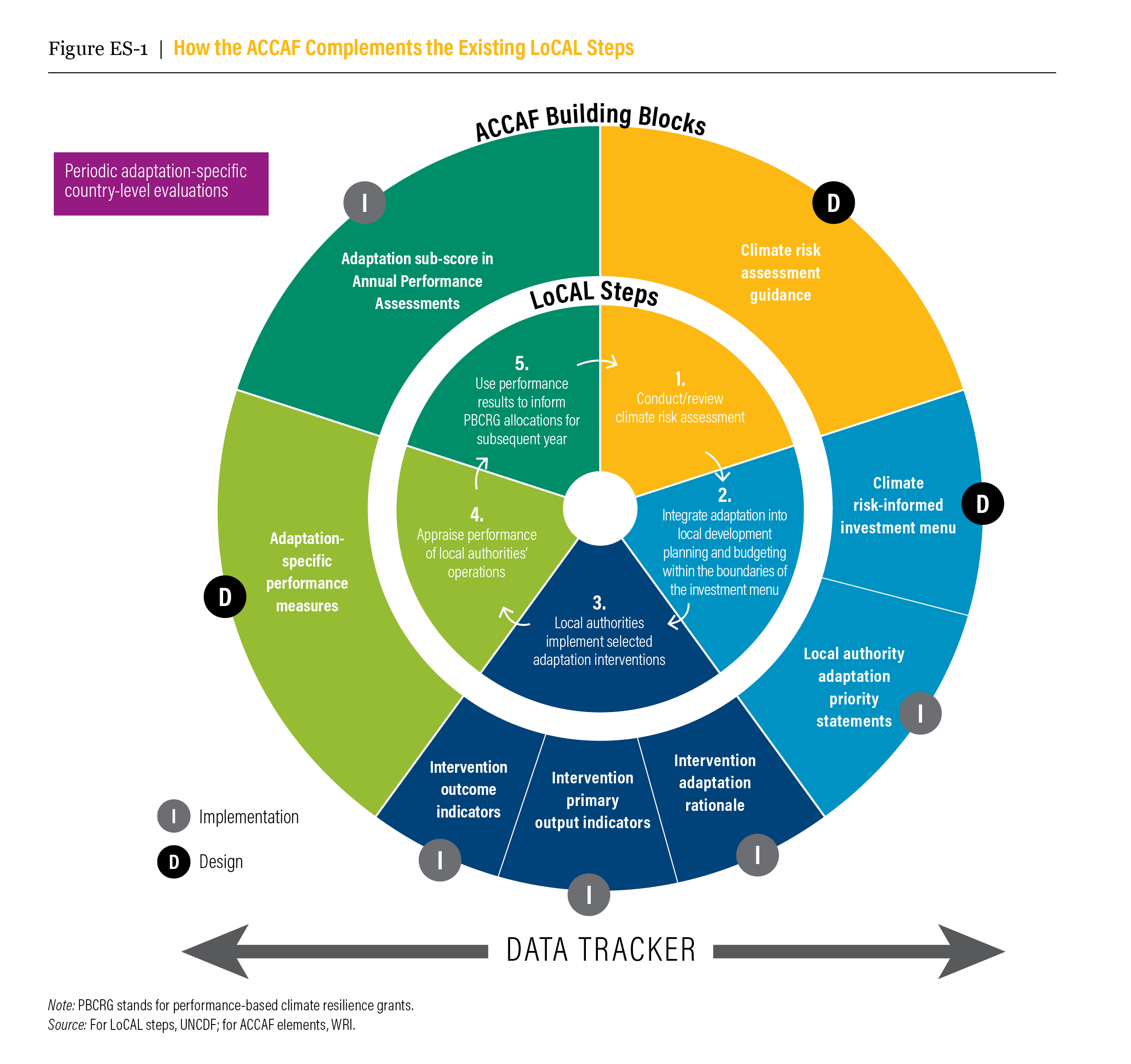Assessing the Effectiveness of Climate Resilience Grants to Local Governments in Least Developed Countries
Tags
Effectively addressing climate change impacts, requires action and adaptation at the local level. The United Nations Capital Development Fund and the World Resources Institute (WRI) have created an adaptation monitoring and evaluation framework to enable the Local Climate Adaptive Living Facility (LoCAL) mechanism to address climate change more effectively. As well as allowing for a better understanding and sharing of the adaptation achievements. This working paper reflects the experiences of this project, focusing on three challenges faced along the way and introduces the LoCAL program and the Assessing Climate Change Adaptation Framework (ACCAF).
Building resilience to increasingly intense climate change impacts requires effective, urgent adaptation action at the local level. While much progress has been made within the international and national arenas, efforts to successfully implement adaptation at the subnational level remains uneven. An innovative initiative focused on building the capacity of local decision-makers and practitioners, the LoCAL mechanism of the UNCDF provides performance-based climate resilience grants to local authorities in least developing and developed countries to finance adaptation interventions. UNCDF’s system includes an Annual Performance Assessment (APA) designed to ensure accountability, sound local-level public administration, and good governance as well as demonstrate adaptation mainstreaming. UNCDF felt this assessment could be strengthened to better assess adaptation effectiveness.

To measure and strengthen LoCAL’s impact, WRI created the ACCAF. While designing the ACCAF, WRI identified three major challenges:
- Incorporating good practice in adaptation monitoring and evaluation (M&E) into an existing performance-based climate resilience grant system;
- addressing measurement issues inherent in mainstreamed adaptation;
- Balancing country-specific and portfolio-wide adaptation M&E needs.
This paper delves into these challenges, presents solutions and offers broader lessons that donors, practitioners and M&E specialists around the world can adopt.
Download the full publication HERE